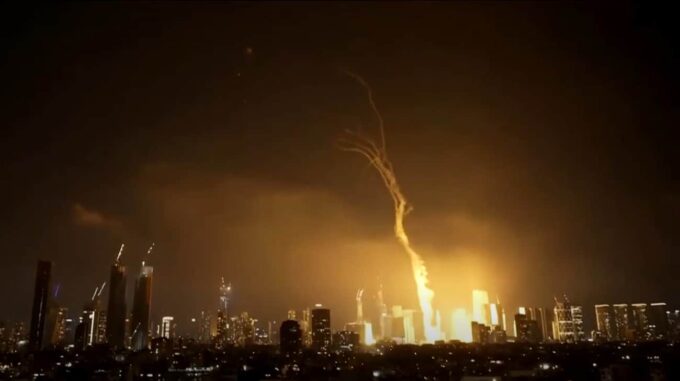According to the latest media reports, tensions around the Israel-Iran conflict have significantly increased after the Israeli military launched a series of strikes against facilities linked to Iran’s nuclear program

Within hours, Tehran responded with a missile attack on Israeli targets. However, particular interest is drawn to the information that the United States actively assisted Israeli forces in intercepting Iranian missile strikes, thereby adding a new level of complexity to the global escalation just before the conflict intensified. Sources published by Axios, citing high-ranking officials from both sides—Israeli and American—indicate that Washington provided support through the air defense system to help Israel repel Iranian ballistic missiles. Reports claim that the U.S. employed its most advanced missile defense systems not only to protect Israeli citizens but also American diplomatic and military facilities within the country. This underscores the seriousness of the situation and the level of strategic partnership between the two countries in the context of regional security. It is evident that U.S. support involved not only the provision of technology but also direct assistance in intercepting missile attacks from Iranian forces. An anonymous American official confirmed that the U.S. has ramped up its air defense systems to safeguard allies. They monitored launches and, where possible, prevented missile strikes, thereby reducing the potential scale of catastrophic escalation. Meanwhile, French President Emmanuel Macron issued an official statement emphasizing that France supports Israel’s right to self-defense. He also stated that if Iran's actions continue, France will be ready to provide appropriate assistance. This indicates that not only the European Union but also individual countries in the East and West have united in their stance in support of Israeli security, calling for diplomatic resolution of the confrontation. As is known, on the night of June 13, Israeli forces carried out strikes against several targets in Iran, including command and control centers, facilities connected to the nuclear program, and military sites located near nuclear facilities. The official reason was to prevent the possible development and use of nuclear weapons by Iran. This was a unilateral action by the Israeli army, although it is known that the U.S. had prior intelligence about the planned strike and even partially supported it to avoid a broader escalation of the conflict. European countries,—including France—appealed to both Iran and Israel to refrain from further actions and to return to diplomatic solutions. They propose revitalizing negotiations to prevent escalation, giving the international community a chance to stop this dynamic and potentially devastating development. Obviously, the situation remains tense, with a high risk of escalation into full-scale open conflict. At the same time, the roles of the U.S., European partners, and Israel in this confrontation appear decisive, as much depends on the international community’s response for shaping the future course of events and for preventing a regional crisis.

